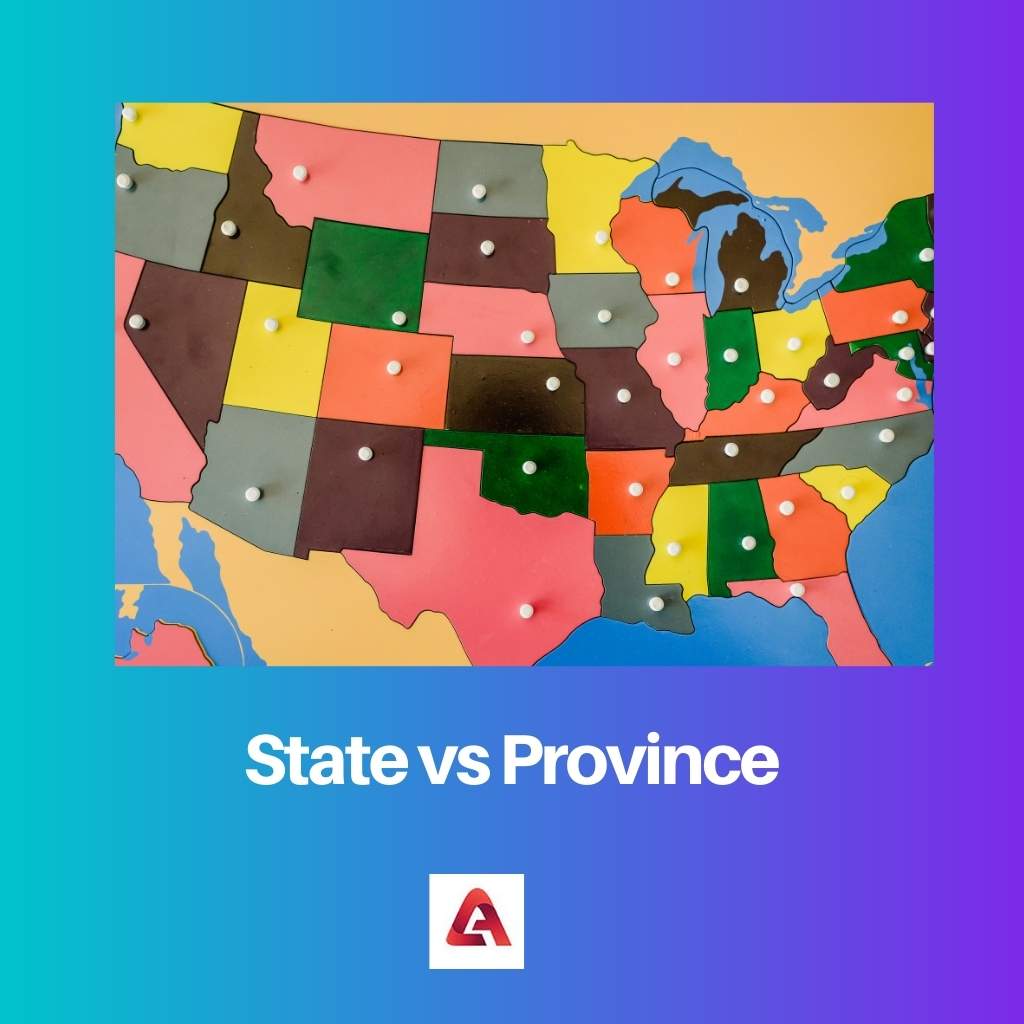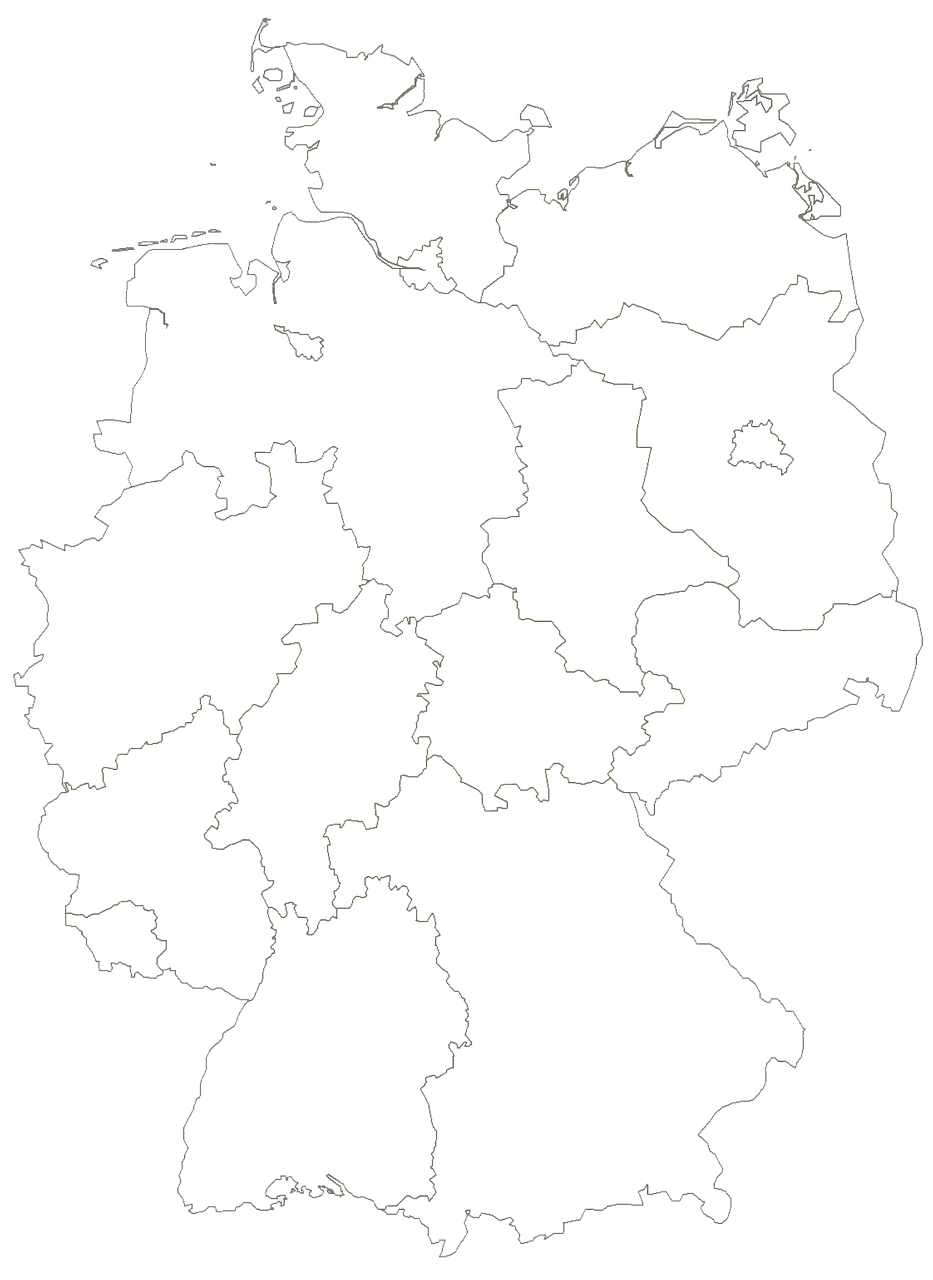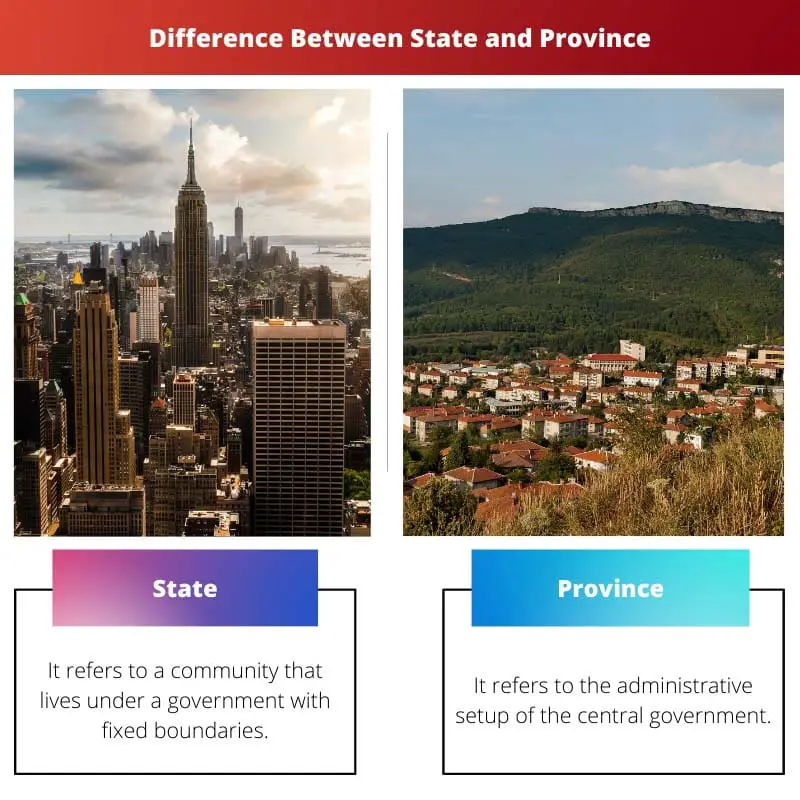Depending on the area where one lives, he or she is exposed to the concepts of state or province. A person who is from a country that uses the state concept frowns upon the idea of the province.
It is easy to be confused and mix up both the ideas of state and province if unaware.
Key Takeaways
- States are political divisions within a country, with their governing bodies and laws.
- Provinces are administrative divisions under the authority of a central government.
- The specific powers and responsibilities of states and provinces vary depending on the country’s political structure.
State vs Province
The difference between state and province is that the amount of power vested with the states is much higher than the power of the provinces. States are provided greater autonomy and power to perform their tasks, while provinces derive their power from the constitution and do not possess greater autonomy.

The idea of a state is ancient and very familiar, too. The notion of state can be traced back to the classical Greek era and before that.
This concept of state can be defined as a nation or territory which is considered as a community under the rule of one government.
The concept of the province can be pretty confusing. The terminology is a recent invention and has not been in use for centuries. A province is an administrative unit of a particular country.
Instead of focusing on territories, provinces are focused on the administration of a city under a central government.
Comparison Table
| Parameters of Comparison | State | Province |
|---|---|---|
| Definition | It refers to a community that lives under a government with fixed boundaries. | It refers to the administrative setup of the central government. |
| Autonomy | States are more autonomous. | Provinces are less autonomous. |
| Focus | Territory and community are the central focus. | Ease of administration is the focus. |
| Allegiance | States are loyal to their federal or union government. | Provinces may pledge allegiance to foreign countries too. |
| Examples | USA, India, and Australia | Canada and China |
What is State?
The concept of state can be traced back to the era of human civilization and kingdoms. Since the inception of human civilization, statehood has naturally developed as a community that lives together as a cohort.
As centuries passed, the idea of statehood adopted the rule of a government that governs the community with a fixed boundary.
Today, this idea of the state has developed into nation-states, and there are several different definitions of State.
To put it into simple terms, a state is a nation, country, or territory that is considered an organized political community under the rule of a single government. A state consists of a community with shared experience, language, and culture.
Humans created the idea of the state through a social contract to protect their life, liberty, and property from brute force. Several political philosophers like Aristotle, Machiavelli, Kautilya, and Hobbes had created different definitions and ideas of State according to their times.
This state could be an independent country. It could also be a part of the larger country or nation. Countries like India adopted this state system and created states within the country based on the different languages and cultures.
This type of state system can also be found in countries like the USA and Australia.

What is Province?
Unlike the idea of a state, the concept of the province is not from ancient times. But provinces do share their share of great history. This idea of the province first seemed to have started with the Romans.
The Roman Kingdom implemented the concept of provinces in their territories. It was a way of managing their large empire.
After conquering newer territories, the Romans then spell out a charter or a constitution for the state. This charter is a set of rules or laws instructing the working of the conquered province.
A court and a General would be appointed for the province to look after the proceedings in the region. This process of provinces made the administration of the Roman Kingdom work smoothly without any confusion.
The distinct part of a province is that a province falls under the rule of a central government. They are governed by the centre too.
Unlike states, provinces do not select their leaders, and the central government appoints the leaders to the provinces. This method is in practice in China. The autonomy of provinces is lesser than that of states.
Despite these differences, countries like Canada have adopted the provincial system. Canada provides slightly greater autonomy with provincial elections and choosing their leaders.
This method of the province is significantly different from the state, especially with the degree of autonomy.

Main Differences Between State and Province
- A State refers to a community that lives under the rule of a single government with fixed boundaries. Province refers to the territories for the ease of administration by the central government.
- States have higher autonomy to make their laws and conduct elections. Provinces have slightly lesser autonomy when compared to states.
- The Ancient Greeks conceptualized the idea of the State to create a political community. The Romans conceived the thought of provinces to manage the territories easily.
- The focus of the state is on the community and territory. The focus of a province is on the ease of administration.
- States can be separate countries or a part of the larger nation. Provinces are certainly part of a country.


The comparisons between states and provinces are quite interesting and enlightening. Thank you for sharing this valuable information.
The article provides insightful information on the differences between states and provinces.
Great educational content. It’s useful to understand how different countries govern their territories.
I never thought of the differences between states and provinces. The historical background brought an insightful context to the comparison.
Good information on the contrasting aspects of states and provinces. The comparison table made it easier to understand the differences.
This read was thought-provoking. The historical origins of states and provinces provide an in-depth understanding of their significance in governance.
A great post overall. Detailed and informative. But an additional focus on the modern-day administration of states and provinces would make it even better.
The political and historical perspectives of states and provinces are very well detailed in the article. Great job!